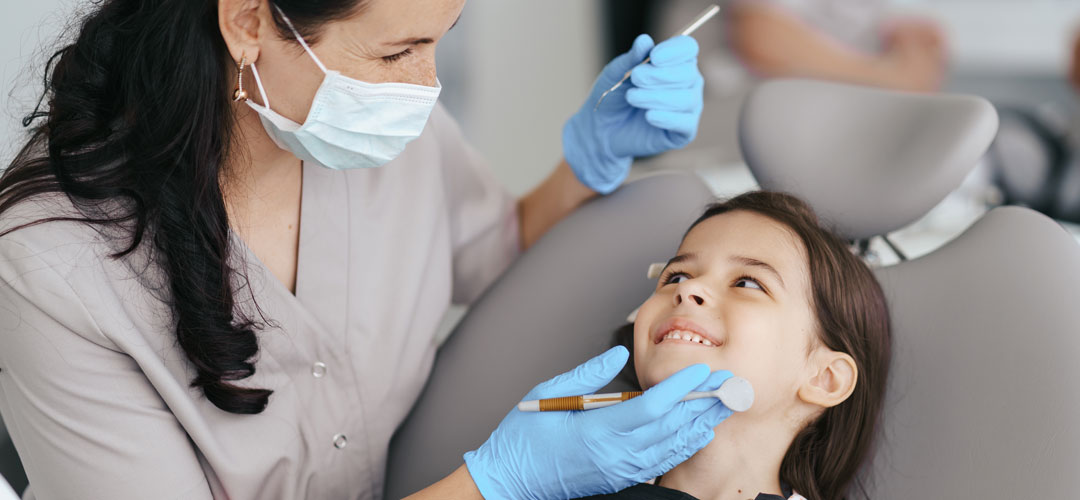
Every child is unique and important, so we have a specialist in child care dentistry to look after children and their teeth called Paediatric Dentists. On the first and subsequent dental visits, we aim to instill a positive attitude in your child towards dental health, reduce their anxiety and see their dentist as a friend
CHILD’S FIRST VISIT TO THE DENTIST
A child should have his or her first dental consultation as soon as the first set of teeth erupt into the mouth. This normally happens as early as 6 months to 1 year of age. During this visit, the dentist can examine the child’s teeth and advice the parents regarding the oral hygiene measures, diet, preventive measures to avoid dental decay etc.
WHEN SHOULD A CHILD START BRUSHING TEETH?
Parents should start brushing a child’s teeth as soon as teeth erupt into the oral cavity. A soft to very soft bristle toothbrush and paediatric paste should be used for brushing. Brushing should be done twice daily. More importantly, the parents should do the brushing for very young children and supervise the brushing of children who are brushing on their own.
PREVENTIVE MEASURES TO AVOID DENTAL DECAY
Brushing twice daily and regular visits to the dentist at least twice a year can prevent decay to a large extend. In addition, the dentist may suggest fluoride application to strengthen teeth against dental decay and sealants to prevent cavities. These measures greatly reduce the chances of dental decay in early childhood
WHEN WILL PERMANENT TEETH ERUPT INTO THE ORAL CAVITY
The first deciduous teeth or baby teeth fall and the permanent tooth erupts into the mouth between 6 to 7 years of age. The entire set of baby teeth falls and get replaced by permanent teeth between the ages of 6 to 12 years. It is not uncommon for children to have an early or delayed eruption of teeth. The dentist will be able to examine the child and advice if there are any abnormalities and what steps can be taken to prevent any long-term problems.
MANAGING AN ANXIOUS AND UNCOOPERATIVE CHILD
Occasionally children can be difficult to manage in the dental chair. Paediatric dentists are trained to manage these children. However, at times we come across children who are very uncooperative. This could be due to their anxiety, too young to follow instructions or due to some physical or mental challenges. These children might need some kind of sedation or at times general anesthesia in their best interest.
Dental treatments
- BRACES FOR CROOKED TEETH
- COSMETIC DENTISTRY
- DENTAL BRIDGE
- DENTAL CROWNS
- DENTAL IMPLANTS
- IMMEDIATE DENTURES
- INVISIBLE BRACES
- LASER DENTISTRY
- MOUTH ULCERS AND TREATMENT
- REMOVAL OF WISDOM TEETH
- REPLACEMENT OF MISSING TEETH
- ROOT CANAL TREATMENT
- SEDATION DENTISTRY
- SPECIALIST CARE FOR CHILDREN
- TREATMENT FOR GUM DISEASES